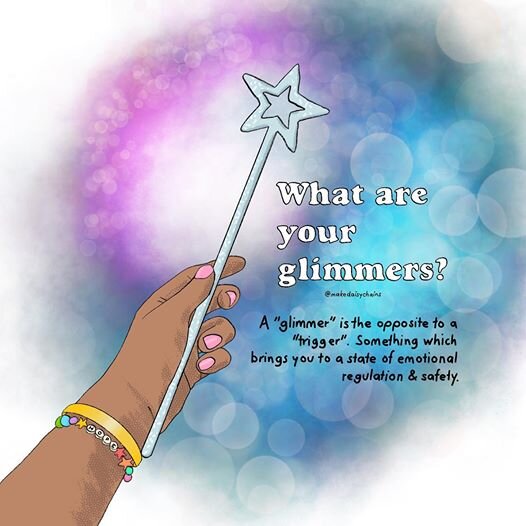The ablity to identify your glimmers is at least as important as the ability to identify your triggers.
Hannah Daisy introduced me to “glimmers.” She’s an English illustrator and mental health advocate who works for the National Health Service as an occupational therapist and artist. Scrolling through her Facebook page felt like listening in on a private therapy session with a wise counselor.
One of Daisy’s questions popped out at me:
Everyone has triggers—circumstances that prompt uncomfortable, disruptive thoughts and feelings. Maybe it’s someone’s comment or even just tone of voice. Maybe it’s the sight of a certain building or situation.
Healthy Survivors benefit from developing a repertoire of reliable healthy responses to triggers. We usually call them coping tools or strategies, or healthy management skills, or some other dry descriptor. That’s why the whimsical label “glimmer” captured my attention.
Defined by Daisy as “something which (sic) brings you to a state of emotional regulation and safety,” glimmers have almost-magical powers to help you regain your footing and, as the bracelet suggests, find hope. You don’t have to understand why or how it helps. You just know it does. Maybe it’s an aphorism, a song, a scent, or rubbing a rock.
As a Healthy Survivor, reflecting on your “glimmers” may remind you of techniques that have worked in the past and motivate you to find new ones.
We welcome your comments! SEE COMMENTS UNDER COMMENT BOX (below)
Subscribe here for e-notifications of new posts. Privacy Policy: We collect only your name and email address—and we do not share with anyone. You may unsubscribe easily at any time. For archives of older posts, click here
Share

